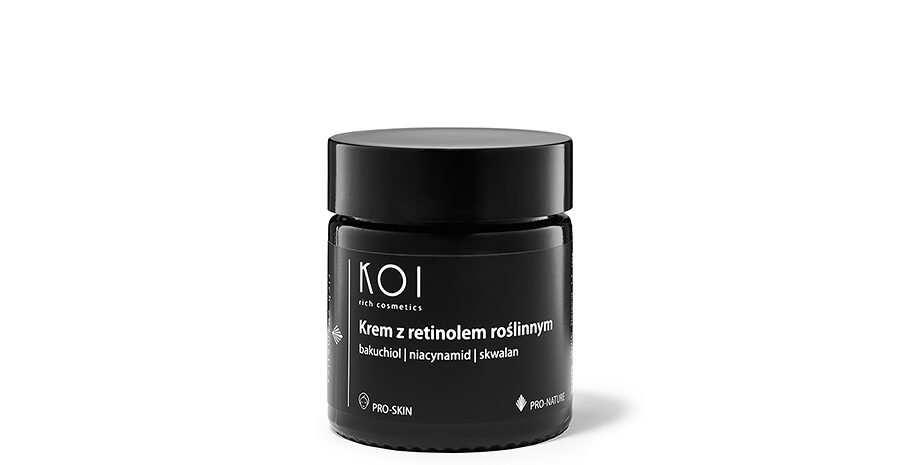Introduction
In the vast world of skincare ingredients, retinols have earned a reputation as a powerful anti-aging weapon. But what exactly is it, and how does it work its magic on our skin? This article delves into the science behind retinol, exploring its benefits, potential drawbacks, and how to incorporate it safely into your skincare routine.
What is Retinol?
Retinol is a form of vitamin A. Our bodies naturally convert it into retinoic acid, the active ingredient that interacts with skin cells. It is found naturally in some foods like eggs, fish, and dairy products. However, most skincare products containing retinol use a synthetic form for better stability and potency.
How Does It Work?
It works its wonders on multiple levels within the skin:
- Cellular Turnover: It stimulates the production of new skin cells, replacing old, damaged ones. This results in a smoother, brighter complexion.
- Collagen Boost: Retinol encourages the production of collagen, a protein that provides skin with its structure and elasticity. This helps to reduce wrinkles and fine lines.
- Sun Damage Reduction: It can minimize the effects of sun damage, such as hyperpigmentation and uneven skin tone.
Benefits
Here’s a closer look at the impressive benefits retinol can offer for your skin:
- Reduces Wrinkles and Fine Lines: By boosting collagen production and promoting cell turnover, it effectively diminishes the appearance of wrinkles and fine lines.
- Combats Acne: It helps to unclog pores and reduce inflammation, making it a valuable tool for managing acne breakouts.
- Improves Skin Texture: Its ability to stimulate cell turnover leads to smoother, more even-toned skin.
- Minimizes Hyperpigmentation: It can lighten dark spots and hyperpigmentation caused by sun damage or acne scarring.
Potential Drawbacks
While it boasts impressive benefits, it’s important to be aware of its potential drawbacks:
- Sensitivity: It can irritate the skin, especially during initial use. Symptoms may include dryness, redness, and flaking.
- Sun Sensitivity: It can increase sun sensitivity. Consistent daily use of sunscreen with SPF 30 or higher is crucial.
- Pregnancy and Breastfeeding: Pregnant or breastfeeding women should avoid retinol due to potential risks to the developing fetus or infant.
How to Use Safely
To reap the benefits of retinol while minimizing irritation, follow these tips:
- Start Slow: Begin with a low-concentration retinol product (around 0.3%) and use it only 1-2 times per week. Gradually increase frequency and concentration as tolerated by your skin.
- Moisturize: It can be drying, so consistent use of a gentle moisturizer is essential.
- Sunscreen is Key: Never skip sunscreen with SPF 30 or higher during the day, as it increases sun sensitivity.
- Nighttime Application: Use it at night, as it can break down in sunlight.
- Patch Test: Before applying to your entire face, do a patch test on a small area of your inner arm to check for sensitivity.
Alternatives
If you experience significant irritation with this, consider these gentler alternatives:
- Bakuchiol: A plant-derived ingredient with some retinol-like properties that may be better tolerated by sensitive skin.
- Vitamin C: A potent antioxidant that brightens skin and helps reduce hyperpigmentation.
- Alpha Hydroxy Acids (AHAs): Chemical exfoliants that promote cell turnover and improve skin texture.
FAQs
Is it safe for all skin types?
While generally safe for most skin types, it can be irritating. Start slow and observe your skin’s reaction. If you have very sensitive skin, consult a dermatologist before using it.
How long does it take to see results with this?
It typically takes 4-8 weeks of consistent use to see noticeable results with retinol.
Can I use it with other skincare products?
It depends on the product. Avoid using it with harsh exfoliants or other potentially irritating ingredients. Consult a dermatologist for guidance on combining itwith other products in your routine.
Conclusion
It is a powerful anti-aging ingredient with a proven track record for improving various skin concerns. However, it requires responsible use to minimize potential irritation. By starting slow, prioritizing sun protection, and incorporating a gentle moisturizer, you can harness the power of retinol to achieve a rejuvenated, radiant complexion. Remember, if you have any concerns
